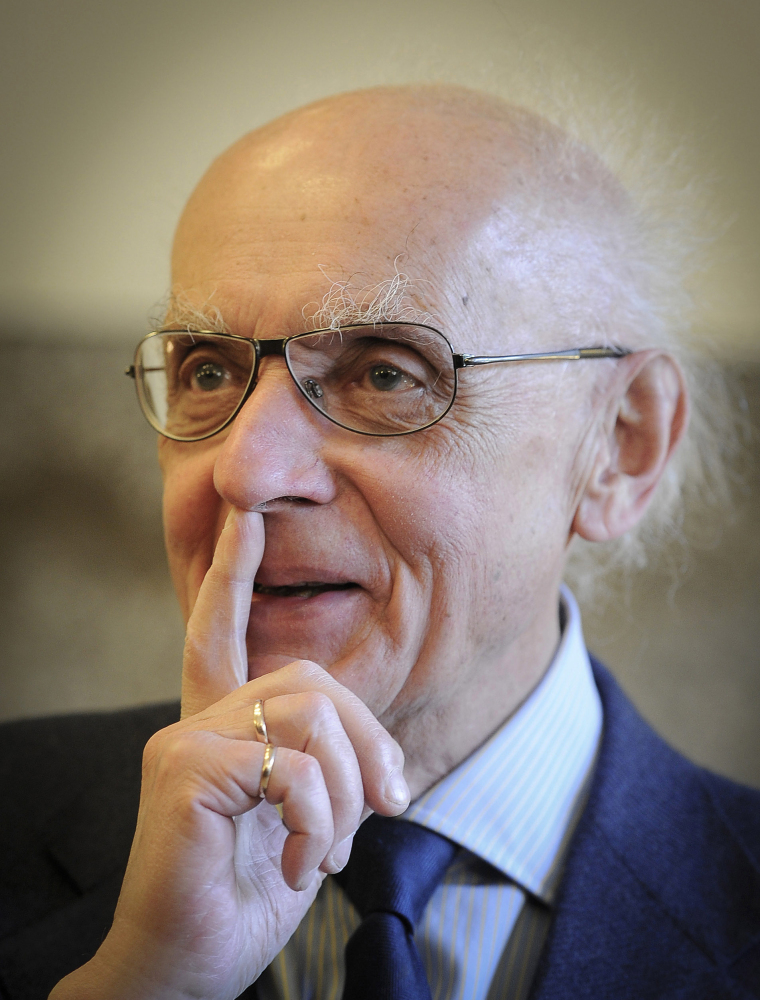WARSAW, Poland — Wojciech Kilar, a Polish pianist and composer of classical music and scores for many films, including Roman Polanski’s Oscar-winning “The Pianist” and Francis Ford Coppola’s “Bram Stoker’s Dracula,” died Sunday. He was 81.
The composer died in his hometown of Katowice, southern Poland, following a long illness, according to Jerzy Kornowicz, head of the Association of Polish Composers.
“The power and the message of his music, as well as the noble character of Wojciech Kilar as a person, will stay in my memory forever,” said Kornowicz.
Polish film director Kazimierz Kutz said working with the composer “was pure pleasure. He would come, see my movie and a month later he would bring extremely good music that was always beyond my expectations.”
A modest man who often avoided public attention, Kilar’s main love was composing symphonies and concertos, and he always put that above movies, even though he wrote the scores of dozens of films. He drew inspiration from Polish folk music and religious prayers and hymns, which he had learned in Latin as an altar boy.
But it was film music, especially for Coppola’s 1992 erotic horror movie, that brought this prolific vanguard composer to the world’s attention and commissions from other celebrity directors, including Jane Campion and her “Portrait of a Lady.” Kilar once said the three criteria that made him write film music were, in this order: the name of the director, the salary and the script.
In a 2007 interview with PLUS, a journal about Polish-American affairs, he recalled asking Coppola in Los Angeles what kind of music he was expecting and the director replied: “I did my part. You are the composer. Do what you want.”
Kilar’s dedication to composing primarily for the concert halls even led him to lose a commission to write the score for Peter Jackson’s “Lord of the Rings” trilogy. “In a movie, music is just one of the many elements,” Kilar once said. “Serious music, which I compose, is signed with my name only, and I get real pleasure from that.”
Kilar wrote music for more than 130 movies in Poland and abroad, but “Dracula” won him the Best Score Composer award from the American Society of Composers, Authors and Publishers in 1992.
His dense, broad and heart-swelling music is very evocative and seems destined to illustrate movies. Richly instrumented, it uses repetition of a simple melody, making it sound like romantic classical music. His trademark sounds involve basses and cellos.
Classical music exercises bored Kilar when he was learning to play the piano as a child. Only when he got to know contemporary music by Claude Debussy, Maurice Ravel and Karol Szymanowski did he find his passion in life.
In the 1950s he tried composition in a neoclassicist style, in vogue at that time. After studying in Paris, he became one of Poland’s three leading vanguard composers in the 1960s. The other two were also giants: Krzysztof Penderecki and Henryk Mikolaj Gorecki, who died in 2010. They experimented with sound quality, serialism and the 12-tone techniques.
A turning point came in 1974 with “Krzesany,” a symphonic poem for an orchestra, inspired by highlander music of the Tatra mountains region of southern Poland. From then on, Kilar drew inspiration for his classical music from Polish tradition and Catholic church music.
Send questions/comments to the editors.



Success. Please wait for the page to reload. If the page does not reload within 5 seconds, please refresh the page.
Enter your email and password to access comments.
Hi, to comment on stories you must . This profile is in addition to your subscription and website login.
Already have a commenting profile? .
Invalid username/password.
Please check your email to confirm and complete your registration.
Only subscribers are eligible to post comments. Please subscribe or login first for digital access. Here’s why.
Use the form below to reset your password. When you've submitted your account email, we will send an email with a reset code.